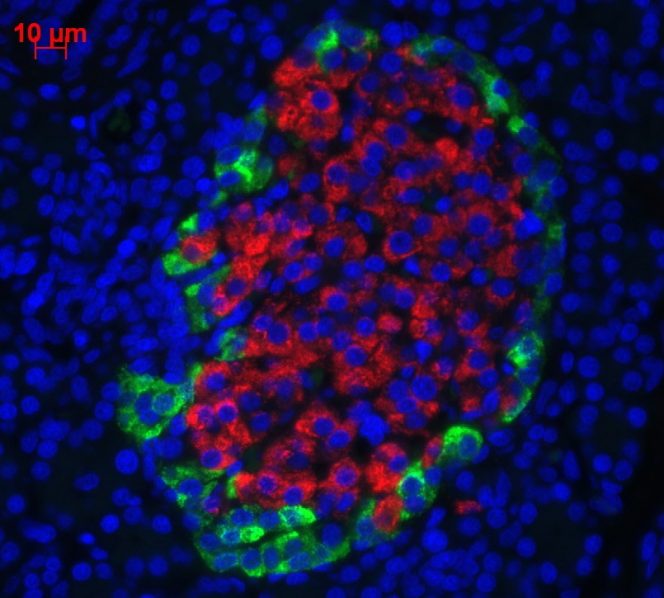PRESENTATION
Diabetes mellitus is a very common metabolic disorder affecting more than 400 million people worldwide. It occurs when pancreatic β-cells do not secrete enough insulin to meet the body’s needs and to maintain blood glucose homeostasis. Dysfunction and failure of β-cells are associated with changes in gene expression caused by prolonged exposure of the insulin-secreting cells to elevated concentrations of glucose, fatty acids or inflammatory mediators. The aim of the studies carried out by the Romano Regazzi’s group is to evaluate the role of newly discovered forms of non-coding RNAs, including microRNAs, tRNA-derived fragments, long non-coding RNAs and circular RNAs in the control of β-cell function and in the development of different forms of diabetes mellitus.



